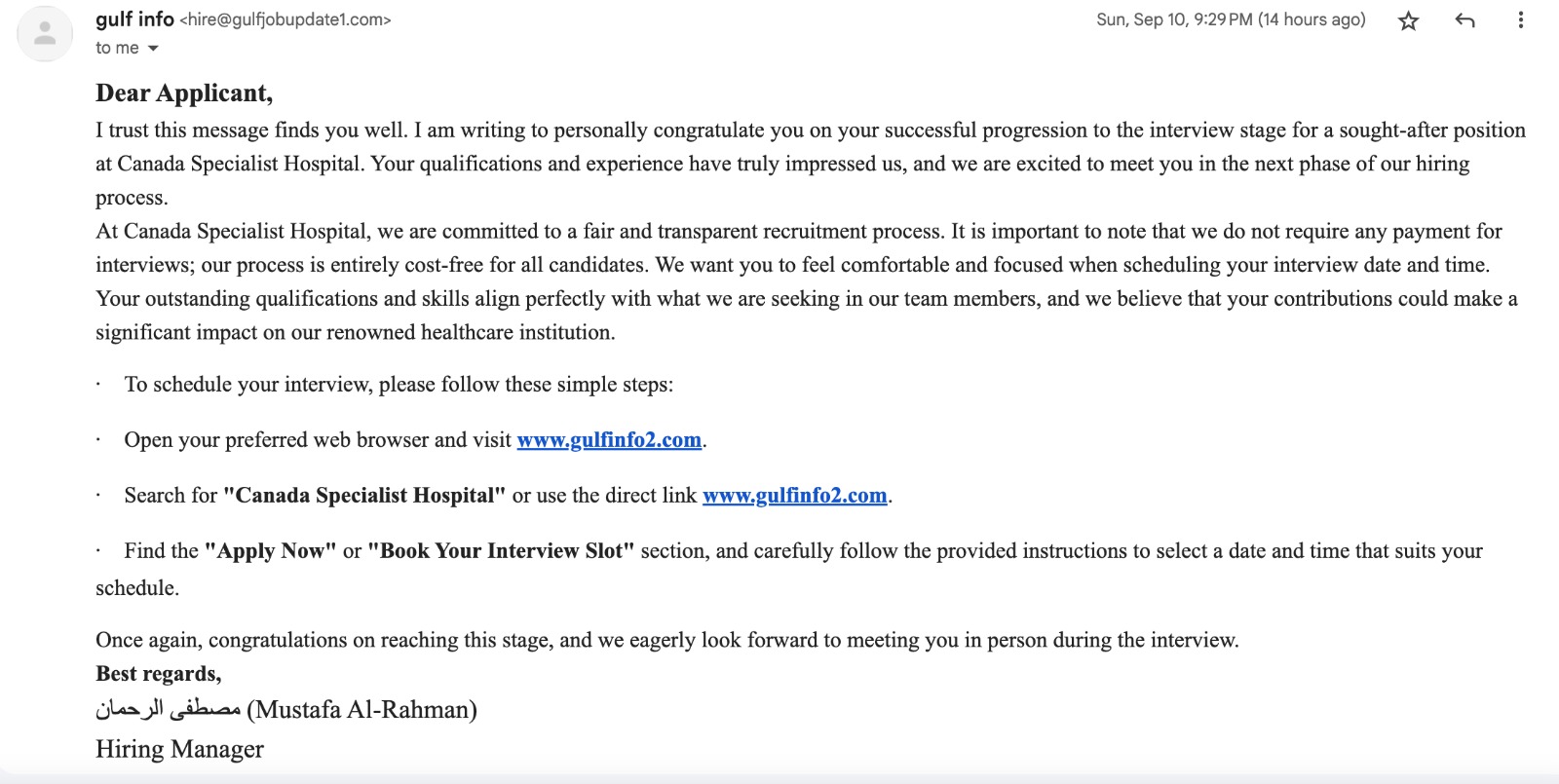Job Interview Scam Alert
My Experience with a Suspicious Email
In the age of digital job applications, receiving an email inviting you to a job interview can be an exciting moment. However, I recently had an experience that serves as a stark reminder of the importance of staying vigilant during your job search.
Imagine my surprise when I checked my inbox and found an email congratulating me on successfully progressing to the interview stage for a position at Canada Specialist Hospital. The catch? I had never applied for this job!
Here’s the email I received:

The first thing that caught my attention was the fact that I hadn’t applied for any position at Canada Specialist Hospital. This raised a massive red flag right away. Legitimate employers typically contact candidates who have expressed interest in a position or submitted applications.
As I continued reading the email, I noticed several other concerning signs:
1. Lack of Specific Information: The email was vague, lacking any specific details about the job position, the company, or the role’s requirements. Legitimate interview invitations provide comprehensive information about the job to help candidates prepare effectively.
2. Suspicious Website: The email instructed me to schedule my interview by following a link to www.gulfinfo2.com. However, when I clicked on it, I was taken to a WordPress login page, not the official website of Canada Specialist Hospital. This is a common tactic used by scammers to deceive unsuspecting victims.
3. No Personalization: The email began with “Dear Applicant,” which is far from the personalized communication you’d expect from a legitimate employer. They didn’t even address me by name.
4. Request for Payment: The email reassured that they don’t require payment for interviews. This is important because scammers often ask for fees to secure interviews or cover background check costs. Legitimate employers never charge candidates for interviews or application processes.
5. Unusual Email Address: The hiring manager’s email address was مصطفى الرحمان (Mustafa Al-Rahman), which is not a typical format for professional communication. Legitimate employers usually use email addresses associated with their organization’s domain.
Given these glaring red flags, it was clear to me that this email was a scam attempt. The scammers were likely trying to collect personal information or, worse, financial details. I knew better than to engage with them further.
What I Did:
- I did not click on any links or download any attachments from the email.
- I conducted independent research on Canada Specialist Hospital to verify their legitimacy.
- I reported the suspicious email to the relevant authorities and the job search platform I use.
Conclusion:
My experience serves as a cautionary tale for all job seekers. The digital landscape has made job searching more accessible, but it has also made us vulnerable to scams. Always trust your instincts, and if something feels off or too good to be true, investigate further. Don’t hesitate to report suspicious activity to protect yourself and others from falling victim to scams. Remember, legitimate employers will never ask you to pay for an interview, and they provide clear and specific information about the job.
Stay safe in your job search journey.




